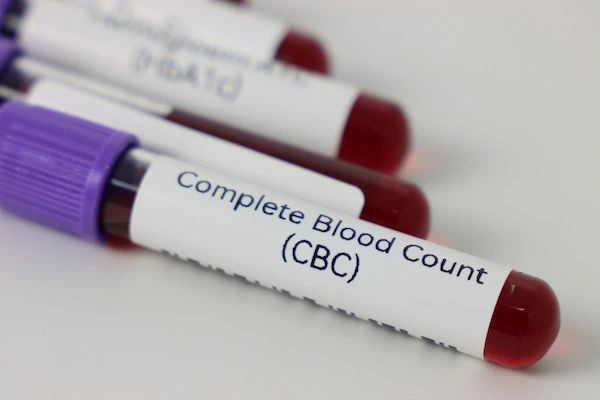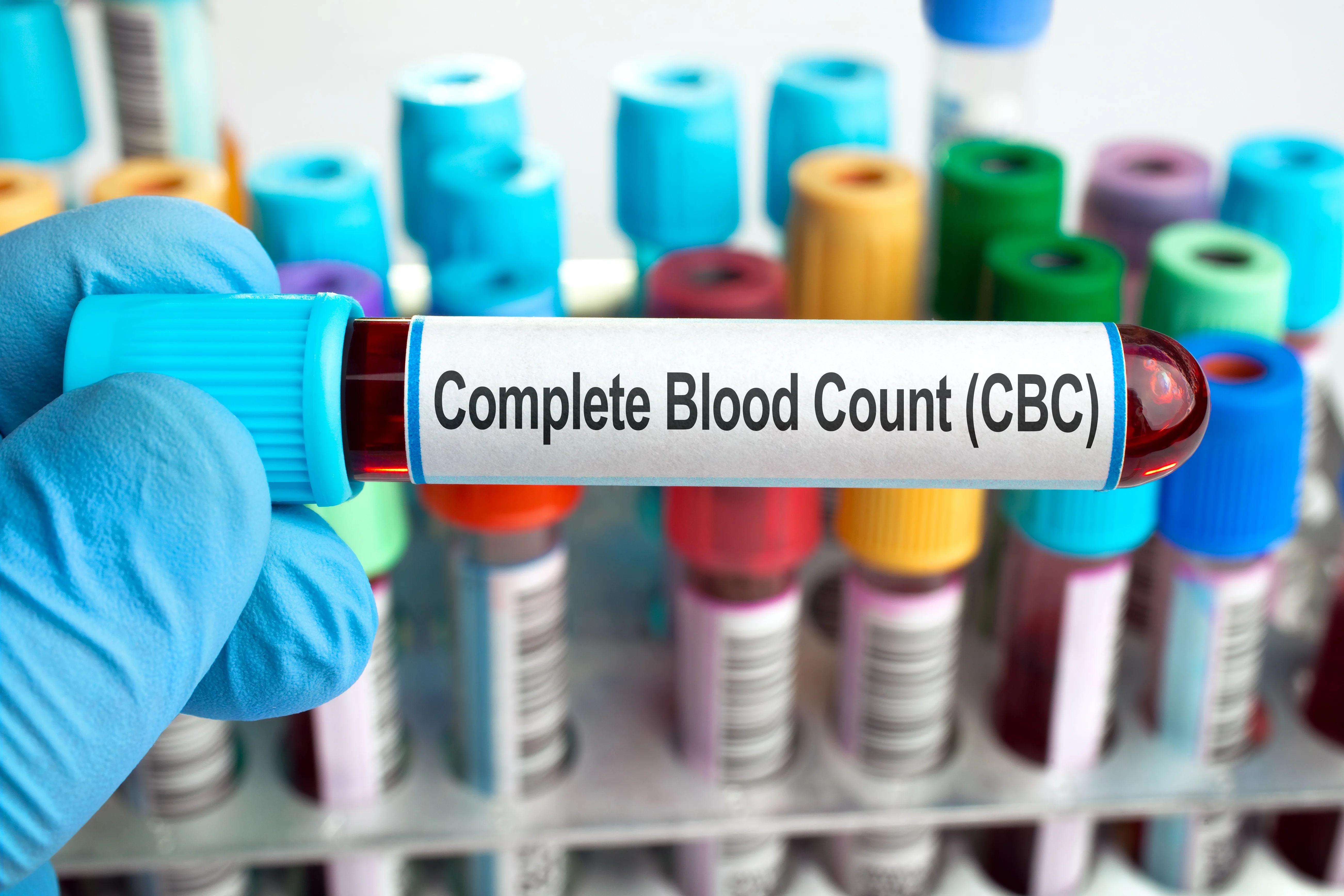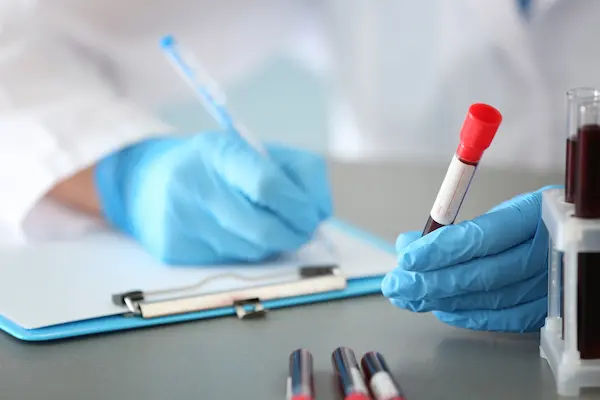5th Month Pregnancy Blood Test
Understand the common blood tests done in your 5th month of pregnancy. Learn what to expect, why they're important for your health and your baby's development.

.webp?tr=q-80,f-webp,w-350,dpr-2,c-at_max 700w)
5th Month Pregnancy Blood Test
Introduction
Pregnancy is an exciting journey, but it also comes with regular checkups and tests to ensure both the mother and baby are healthy. One important milestone is the 5th month (around 20 weeks), when certain blood tests are recommended. If you're expecting and curious about what these tests involve, this guide will help you understand their purpose, what they check for, and how they contribute to a healthy pregnancy.
Why Are Blood Tests Done in the 5th Month?
By the fifth month, your baby is growing rapidly, and your body is undergoing significant changes. Blood tests at this stage help monitor:
- Maternal health (e.g., anemia, infections, or gestational diabetes)
- Baby’s development (e.g., genetic conditions or growth issues)
- Any complications that may need early intervention
These tests are routine and help doctors provide the best care for you and your baby.
Common Blood Tests in the 5th Month
Common blood tests are:
1. Complete Blood Count (CBC)
This test checks for:
- Anemia (low red blood cells) – Common in pregnancy due to increased blood volume.
- Infections – High white blood cells may indicate an infection.
- Platelet count – Ensures proper blood clotting during delivery.
Why it’s important: Anemia can cause fatigue and weakness, while infections may need treatment to protect the baby.
Get Your Symptoms Assessed
2. Glucose Screening Test (for Gestational Diabetes)
- A glucose challenge test is done between 24-28 weeks, but some doctors may start screening earlier if there’s a risk.
- You’ll drink a sugary solution, and blood will be drawn after an hour to check blood sugar levels.
Why it’s important: Untreated gestational diabetes can lead to complications like a larger baby, preterm birth, or high blood pressure.
3. Iron and Ferritin Levels
- Check iron stores in the body.
- Low iron can lead to anemia, causing tiredness and affecting the baby’s oxygen supply.
Tip: Eat ironrich foods like spinach, lentils, and lean meats. Vitamin C (oranges, tomatoes) helps with iron absorption.
4. Thyroid Function Test
- Pregnancy can affect thyroid hormone levels, which are crucial for baby’s brain development.
- Hypothyroidism (low thyroid) can lead to developmental delays if untreated.
5. Antibody Screening (if Rh negative)
- If your blood type is Rhnegative and the baby is Rh positive, your body may produce antibodies that can harm future pregnancies.
- A shot called Rh immunoglobulin (RhoGAM) may be given to prevent complications.
Consult Top Physician For More Health Benefits
How Do These Tests Affect Your Health?
These tests help detect issues early so that doctors can:
- Treat anemia with iron supplements.
- Manage gestational diabetes with diet or medication.
- Monitor thyroid levels and adjust medication if needed.
- Prevent related complications with timely treatment.
Preparing for Your Blood Tests
- Fasting may be required for the glucose test (your doctor will guide you).
- Stay hydrated to make blood drawing easier.
- Wear loose sleeves for easy access to your arm.
When to Consult Your Doctor?
If your test results show any abnormalities, your doctor will discuss the next steps. Don’t hesitate to ask questions—understanding your results helps you stay informed and relaxed.
Tips for a Healthy 5th Month Pregnancy
Tips for a healthy are:
- Eat a balanced diet (fruits, vegetables, proteins, whole grains).
- Stay active with gentle exercises like walking or prenatal yoga.
- Take prenatal vitamins (especially folic acid and iron if prescribed).
- Stay hydrated and rest when needed.
Need a Pregnancy Blood Test?
If you're due for your 5th month pregnancy blood tests, you can easily book a test or consult a specialist through Apollo 24|7. Early detection and care ensure a smoother pregnancy journey.
Final Thoughts
Pregnancy tests may seem overwhelming, but they’re designed to keep you and your baby safe. By staying informed and following your doctor’s advice, you can enjoy this special time with confidence.
Consult Top Physician
Consult Top Physician

Dr. Chaithra H
General Physician/ Internal Medicine Specialist
6 Years • MBBS, MD General Medicine, DNB General Medicine
Bangalore
Apollo 24|7 Clinic - Karnataka, Bangalore

Dr. Mohammed Kamran
General Practitioner
5 Years • MBBS, FIDM
Nashik
Apollo 24|7 Clinic - Maharashtra, Nashik

Dr. Jawwad Mohammed Kaleem
General Practitioner
4 Years • MBBS
Hyderabad
Apollo 24|7 Clinic, Hyderabad

Dr Divya Lekha Gunta
General Practitioner
10 Years • MBBS, MD (Pathology)
Visakhapatnam
Apollo 24|7 Clinic - Andhra Pradesh, Visakhapatnam

Dr. Siri Nallapu
General Practitioner
5 Years • MBBS
Hyderabad
Apollo 24|7 Clinic, Hyderabad
Consult Top Physician For More Health Benefits

Dr. Chaithra H
General Physician/ Internal Medicine Specialist
6 Years • MBBS, MD General Medicine, DNB General Medicine
Bangalore
Apollo 24|7 Clinic - Karnataka, Bangalore

Dr. Mohammed Kamran
General Practitioner
5 Years • MBBS, FIDM
Nashik
Apollo 24|7 Clinic - Maharashtra, Nashik

Dr. Jawwad Mohammed Kaleem
General Practitioner
4 Years • MBBS
Hyderabad
Apollo 24|7 Clinic, Hyderabad

Dr Divya Lekha Gunta
General Practitioner
10 Years • MBBS, MD (Pathology)
Visakhapatnam
Apollo 24|7 Clinic - Andhra Pradesh, Visakhapatnam

Dr. Siri Nallapu
General Practitioner
5 Years • MBBS
Hyderabad
Apollo 24|7 Clinic, Hyderabad





.webp)